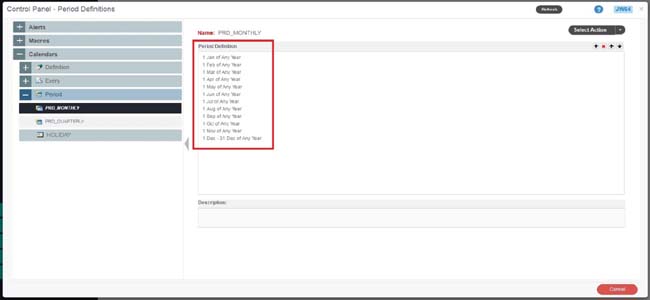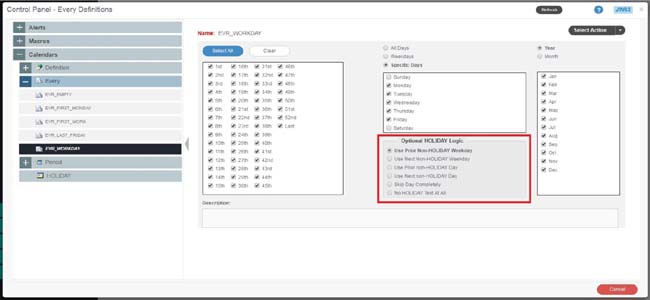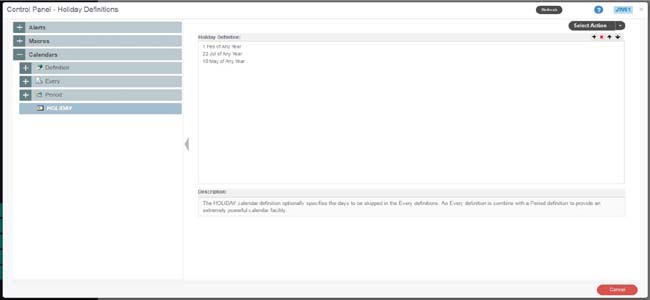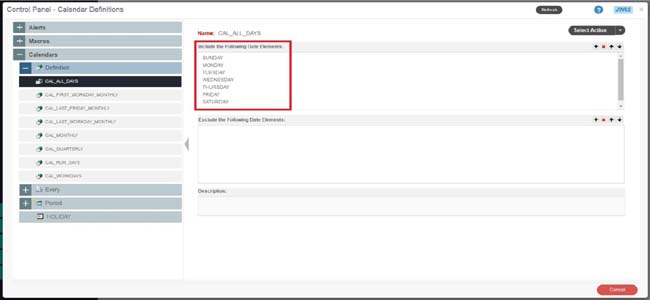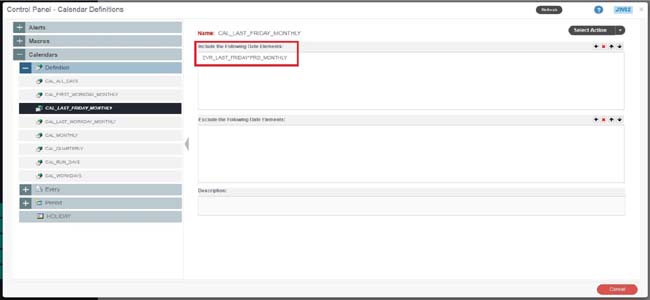KBI 311373 Enhancement: Calendars In Argent WorldView
Version
Argent WorldView 2.3A-R3 and later
Date
Tuesday, 12 April 2016
Summary
Argent WorldView has been enhanced with Calendars in Control Panel
Technical Background
Argent WorldView now has the Calendars screen to configure Alerts from Argent WorldView itself
Calendars are split into 3 different types of definitions:
- Period Definition
A Period Calendar definition is used to define a period of time in terms of days
There is no limit to the number of days that can be defined with a Period definition – it can be as short as two days and as long as 10 years
The sample PRD_MONTHLY definition is shown below
It consists of 12 lines, one for each month of the year
Note the final line in a Period definition must have an end date specified as well as a start date
- Every Definition
The Every Calendar definition is the second half of the Period x Every matrix product
The Every definition defines the frequency to be used, such as ‘every first Monday in the Period’, or ‘the even days in the Period’, and so on
For Every Calendar definition one of the six options is to be specified
The Holiday options are:
- Use Prior Non-HOLIDAY Weekday
- Use Next Non- HOLIDAY Weekday
- Use Prior Non- HOLIDAY Day
- Use Prior Non- HOLIDAY Day
- Skip Day Completely
- No HOLIDAY Test At All
Use Of HOLIDAY
In conjunction with all Every Calendar definitions, there is a special entry called the HOLIDAY Calendar definition, as shown below:
By the use of the HOLIDAY Calendar definition to an Every entry, all special cases can be handled
- Base Definition
The Base Definitions describe the actual Calendar schedule
Base Definitions are used in two ways:
- Stand-alone — describing days of the week, or specific dates
- Combining Every and Period definitions — creating elaborate schedules using the Every and Period matrix product
- Stand-alone — describing days of the week, or specific dates
Resolution
Upgrade to Argent WorldView 2.3A-R3 or later
